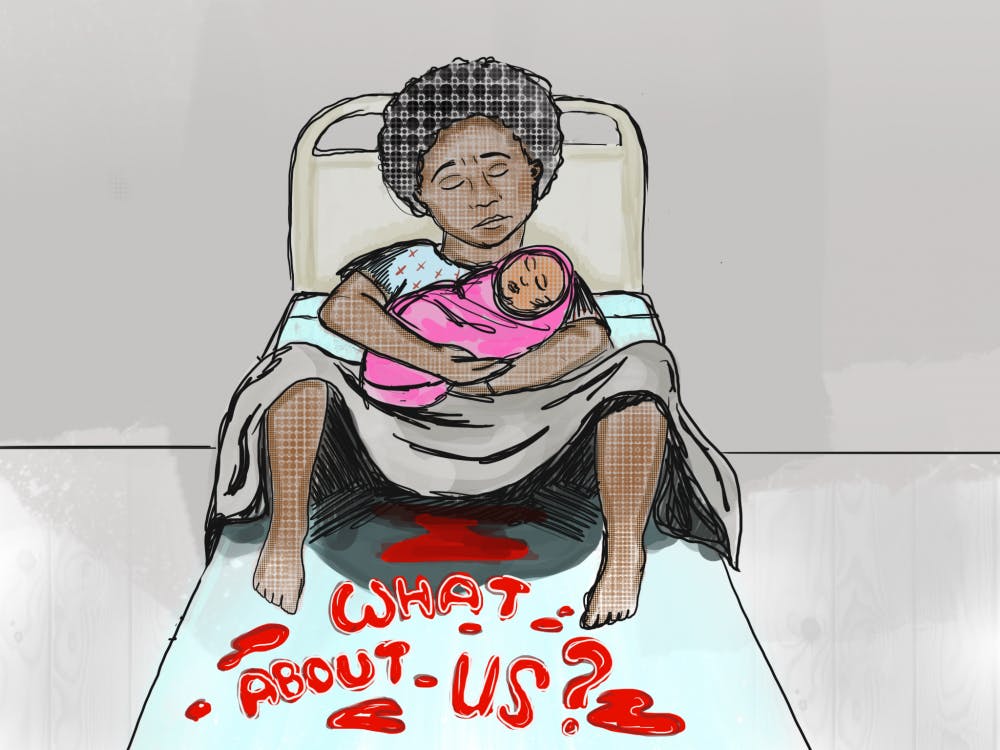During the United States slavery era black women were forced to give birth on filthy, inhumane slave ships. Their health was disregarded, and consequently, women and children died.
Those circumstances were hundreds of years ago, but there are too many parallels in the ways the maternal health of black women is often blatantly ignored.
The World Health Organization defines maternal morality as “the death of a woman while pregnant or within 42 days of termination of pregnancy, irrespective of the duration and site of the pregnancy, from any cause related to or aggravated by the pregnancy or its management but not from accidental or incidental causes.”
According to the Centers for Disease Control and Prevention, black women are three to four times more likely to die from a pregnancy-related complication than non-Hispanic white women.
Racism is deeply rooted in the American society and coincidentally the health care system. Systemic social inequalities create a heavy burden on expecting black mothers.
The CDC also reported that black women experience 43.5 deaths per 100,000 live births while white women experience 12.7 deaths per 100,000 live births.
A country as developed as America should not have such a stark difference in maternal mortality rates based on race.
This is a complicated issue but continues to be dismissed when it is in reality a major health crisis.
The history of socioeconomic challenges of black people has created a financial burden on black women. As a result of these persisting inequalities, black women are less likely to be insured. This creates unequal access to prenatal care and maternal health services.
Persisting social inequalities affect all areas of life such as access to clean water, nutritious foods, safe shelter and secure neighborhoods.
This lack of stability can affect an expecting mother in physical, mental and emotional ways.
It does not only come down to socioeconomic status. According to a five-year study done by the CDC, a black college-educated woman who gave birth at a local hospital is more likely to suffer from severe pregnancy complications than a white women who never graduated from high school.
Considering intersectionality, black women are a double-minority, making it more difficult to navigate through the American health care system.
Black women are not always taken seriously by doctors. Their medical concerns are often dismissed.
This has most recently been brought to light when Serena Williams gave birth in 2017.
Shortly after giving birth Williams had a feeling something horrible was wrong with her body — and she was right. When she brought it to the attention of nurses they thought the pain medication was making her delusional.
This dismissive attitude toward health concerns of black women is unfortunately common. The pain of black women is ignored and as a result, women are dying at disproportionate rates.
If the problem is recognized as a public health crisis, change can be made through working to combat these inequalities.
It is necessary that the maternal health of all women is recognized. The feminist movement needs to be more intersectional and consider all races when advocating for change.
All women need to be accounted for, not just the privileged ones the media often follows.
There needs to be policy in place to ensure equality in the health care system and dismissive doctors and nurses need to be held accountable for their actions.
Most importantly, everyone should have access to some form of medical care.
Black women and babies matter too.






